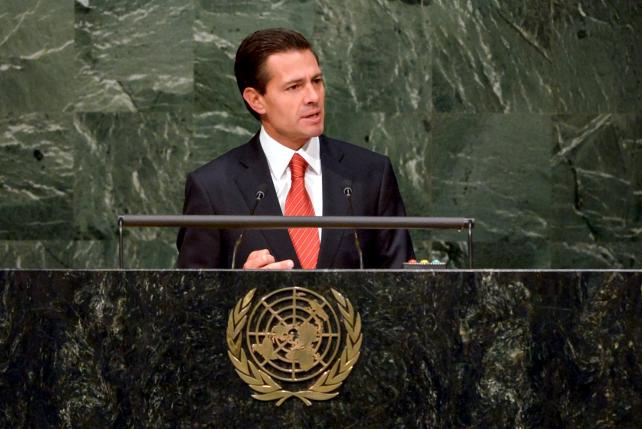
Update: 5.30 p.m. IST, April 23: Some parts of the original story done by the International Business Times, India, were based on a report by the Los Angeles Times, which has subsequently been discovered to be based on a news release that was a hoax. According to a Guardian report, the comments about decriminalising the drug use cited in the LA Times article were part of an elaborate hoax, first unearthed by Marijuana.com.
Original Story: The three-day United Nations (UN) General Assembly Special Session on World Drug Problem, aimed to review the global strategy on the issue, began in New York on Tuesday. The session, attended by government officials, human rights activists and health advocates, will provide a platform for them to rethink the conventional policy followed on drug-related issues.
The United Nations Office on Drugs and Crime (UNODC) announced new international recommendations, including the decriminalisation of marijuana and universal access to controlled medicines, and emphasising the humanitarian aspects related to the problem.
The U.N. said that the welfare of people in all societies should be the main focus of the global drug control system. The global drug control policy, according to Executive Director of UNODC, Yury Fedotov, should assess the problems faced by the low-income countries due to illicit drugs use, according to an official statement.
"These countries need to be assisted, including through support for alternative livelihoods, building accountable, effective judicial and law enforcement capacities to tackle supply, and enhancing prevention and treatment services," Fedotov said.
The U.N. has also suggested reforms in the criminal justice system, that include elimination of mandatory minimum jail sentences and abolition of the death penalty, and acknowledging marijuana's medical use, the Los Angeles Times reported.
"The drug control regime that emerged during the last century has proven disastrous for global health, security and human rights," a letter addressed to U.N. Secretary General Ban Ki-moon, signed by more than 1,000 world leaders, activists and celebrities, said. The letter urges a complete revision of the traditional policy on war on drugs.
However, the revision of the drug policy is not an easy task, considering differences of opinion among the U.N member states over decriminalisation of drugs use and a shift in the focus from drug supply to harmful effects of drugs abuse, according to Reuters.
"We should be flexible to change that which has not yielded results, the paradigm based essentially in prohibitionism, the so-called 'War on Drugs', which has not been able to limit production, trafficking nor the global consumption of drugs," Mexican President Enrique Pena Nieto told the gathering.
The declaration adopted by the General Assembly on Tuesday was not found promising by activists supporting more liberal drug laws. They said it focussed more on the traditional approach of cutting off the drug supply and not on reducing the harm caused by the drugs abuse.
A non-governmental group, comprising billionaire philanthropist Richard Banson and former U.S. Secretary of State George Shultz, flayed the U.N. declaration as long on rhetoric but short on substance.
As per a UNODC report, 19 percent of the adults in the U.S. in the age group of 15-64 years used illicit drugs in 2013, forming the highest percentage in the world that year.

















